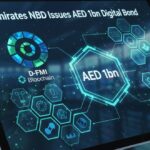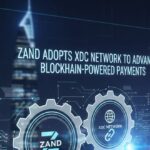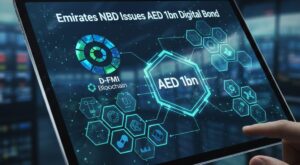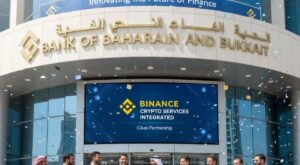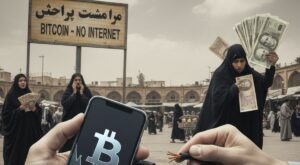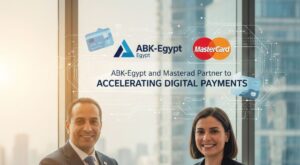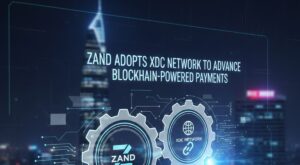The corporate environment in the Middle East and North Africa (MENA) area is gradually changing as a result of blockchain technology. Blockchain is a decentralized, secure digital ledger that has several benefits for a range of businesses, including efficiency, trust, and transparency. The MENA region is positioned to become a pioneer in blockchain-driven innovation, with nations like Bahrain, Saudi Arabia, and the United Arab Emirates leading the way in technical adoption.
Quickening the Process of Digital Revolution
Blockchain technology is essential to the digital transformation that the MENA area is increasingly adopting. Blockchain technology is being used by both public and private sectors to minimize fraud, cut down on paperwork, and streamline operations. As an example, the goal of the Dubai Blockchain Strategy is to have Dubai completely powered by blockchain technology by 2025. By incorporating blockchain technology into government operations, improving data management, and cutting administrative expenses, this effort will establish a model that other nations in the region can imitate.
Improving Payment and Financial Services
In the MENA area, one of the industries most impacted by blockchain technology is finance. Blockchain technology is being incorporated into traditional financial systems more and more to enable safer and quicker transactions. Blockchain-based solutions are being investigated by banks in Bahrain and the United Arab Emirates to lower transaction costs and enhance cross-border payments. Furthermore, the emergence of decentralized finance (DeFi) platforms—which offer financial services without depending on conventional middlemen—is made possible by blockchain technology. This is especially important since it gives people in an area with a high percentage of unbanked people access to financial services via digital wallets and cryptocurrencies built on the blockchain.
Transforming Logistics Supply Chains
The MENA region’s supply chain management is being revolutionized by blockchain thanks to its increased traceability and transparency. Blockchain is being used by companies in manufacturing, retail, and agriculture to track the flow of commodities from manufacture to delivery. For instance, to guarantee food safety and authenticity, IBM’s Food Trust blockchain network has partnered with Middle Eastern businesses. By lowering fraud, stopping counterfeiting, and enhancing supply chain efficiency overall, this technology increases end users’ confidence in the goods they buy.
Increasing Property Management and Real Estate
Due to its ability to streamline real estate transactions and lower fraud, blockchain is also causing a stir in the MENA real estate market. Blockchain-based technologies have been implemented by governments in places like Dubai to automate real estate transactions and make them quicker, safer, and more transparent. Smart contracts, which may automate procedures like property transfers and lease agreements, can be created using blockchain technology. This innovation greatly improves the convenience of conducting business in the area by cutting down on paperwork and minimizing disagreements.
Boosting Data Privacy and Cybersecurity
In the digital era, cybersecurity and data privacy are becoming more and more important issues. In the MENA region, blockchain provides strong answers to these problems. Due to its decentralized structure, blockchain offers a secure environment for sensitive data, making it more difficult for hackers to compromise it. Blockchain-based security measures are being adopted by governments and businesses more frequently in order to safeguard sensitive data and digital identities. A blockchain platform has been introduced by the Ministry of Health and Prevention (MoHAP) in the United Arab Emirates to safely store and exchange health data, guarantee patient confidentiality, and lower administrative errors.
Promoting Entrepreneurship and Innovation
Thanks to supportive government policies and suitable laws, the MENA region is emerging as a center for blockchain innovation and entrepreneurs. With programs like the Dubai International Financial Centre (DIFC) providing incentives to blockchain firms, cities like Dubai and Abu Dhabi are becoming important hubs for blockchain development. By creating solutions such as digital asset management platforms and blockchain-based voting systems, these firms are advancing economic diversification initiatives in the region and establishing the Middle East and North Africa (MENA) as a global leader in blockchain technology.
Changing Services in the Public Sector
The MENA region’s governments are using blockchain technology to revolutionize public sector services with the goal of increasing efficiency, transparency, and citizen participation. For identity management and e-government services, Bahrain, for instance, is investigating blockchain technology. In order to lower the likelihood of fraud and corruption, the technology is also being utilized for digital voting systems, public procurement, and property registry management. Governments in the region can encourage trust and involvement in the digital era by implementing blockchain technology to deliver faster and more dependable services to their inhabitants.
Regulatory and Compliance Frameworks: Driving Force
MENA regulatory organizations are adjusting as blockchain technology gets pace to guarantee safe, effective, and global standard-compliant blockchain usage. Nations such as the United Arab Emirates and Saudi Arabia are putting together legal frameworks to control blockchain-related activities, such as initial coin offerings (ICOs) and digital assets. These rules are designed to safeguard investors, prohibit fraud, and promote creativity. The MENA region is laying the groundwork for a more secure and scalable adoption of blockchain technology across a range of sectors by establishing clear norms and standards.


